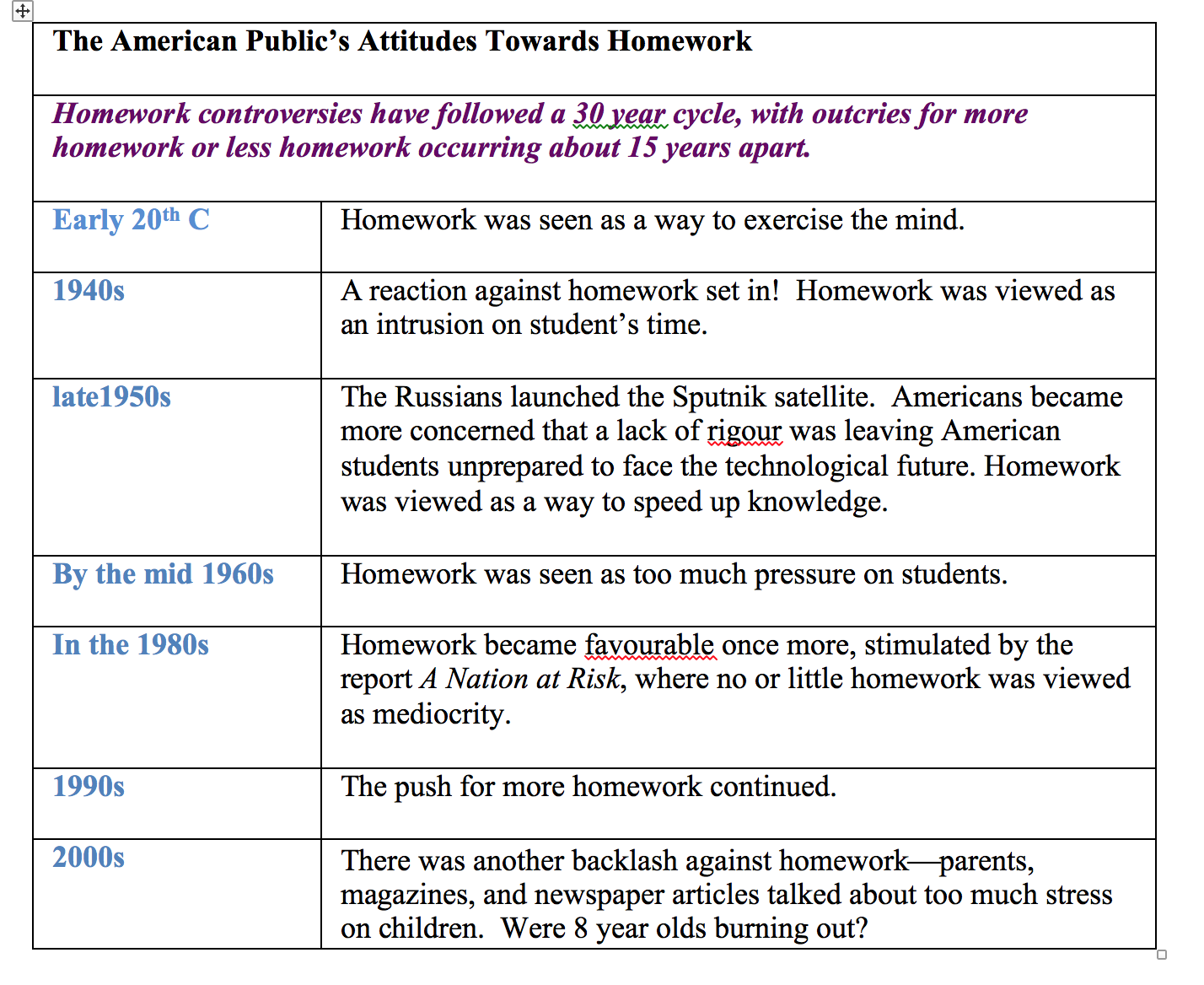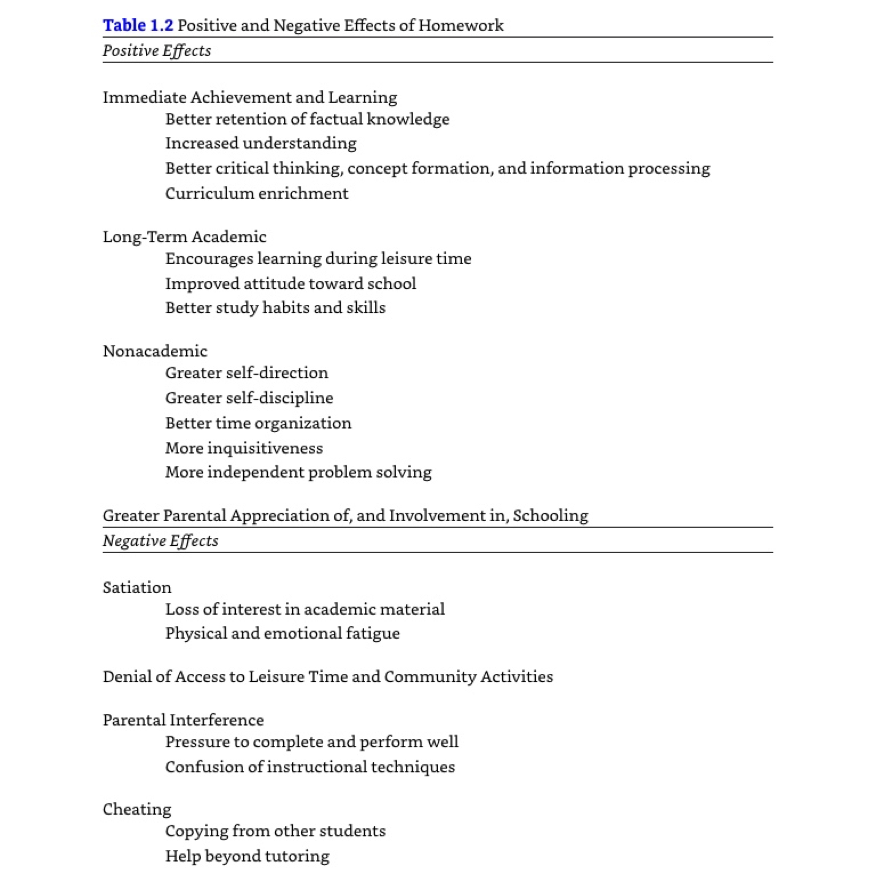Homework — Too Much or Too Little?
Let us begin with a humorous Jack Prelutsky poem about homework angst.
Homework! Oh, Homework!
Homework, oh homework!
I hate you! You stink!
I wish I could wash you
Away in the sink!
If only a bomb would explode you to bits!
Homework! Oh, homework!
You’re giving me fits.
I’d rather take baths
With a man-eating shark
or wrestle a lion, alone in the dark,
eat spinach and liver,
pet ten porcupines,
than tackle the homework
my teacher assigns.
Homework! Oh, homework!
You’re last on my list
I simply can’t see why you even exist.
If you just disappeared
it would tickle me pink.
Homework! Oh, homework!
I hate you! You stink!
By Jack Prelutsky (1984), poet
At SFU, I wrote a 17 pages paper that explores the old debate regarding the value of homework! After spending six hours of the day in school, children are typically given additional assignments to be completed at home. There are those who feel children are overburdened with homework and there are parents and teachers who feel pressed to improve achievement. Polls ask if students are assigned the right amount of homework. But opinions cannot tell us whether homework works. Only research can. My paper (which is too long to include here) looks at the leading researcher on homework (Harris Cooper), as well as the most outspoken critic of homework (Alfie Kohn) in an effort to answer, “Is homework too much of a bad thing?”
I will share a few tidbits with you here…..

Homework assignments can differ in:
amount (frequency, length)
difficulty (hard, easy, interspersed)
purpose (instructional, practice, preparation, extension, punishment, community relations)
skill area utilized (reading, writing, memory or retention)
student choice (compulsory, with task options, voluntary)
completion deadlines (short-term, long-term) and
social context (independent, assisted, parent, sibling, other students, group).

Is there an optimum amount of homework?
Yes. But what is optimum depends on the student’s age (Cooper, 1989, 2007). Cooper suggests 10 minutes per grade per weeknight. So grades 6 would be 60 minutes, and grade 7 would be 70 minutes.

Cooper and his colleagues analyzed dozens of homework studies conducted between 1987 and 2006 to examine whether homework is beneficial and what amount of homework is appropriate for our children. He found very little correlation between the amount of homework and achievement in elementary school and only a moderate correlation in middle school. Even in high school the strongest relationship between homework and achievement was found among twelfth grade students who reported doing 7 or 12 hours of homework per week (Cooper, 2007). This result might suggest that the optimal amount of homework for twelfth graders is 1.5 to 2.5 hours per night
HOW DO I ASSIGN HOMEWORK?
- I restrict homework Monday to Thursday, as I do not want to impose on their weekend and family time.
- Some projects, though, may require extra time on a weekend where students can get together to work on an assignment, or parents are available to be a part of it.
- Some students take work home because they dawdle in class.
- My rule of thumb is no more than 1.5 hours in one night.
- Some nights I assign no homework!
- I won’t dole out an assignment just for the sake of having homework and to keep them busy.
- I bear in mind that students complete homework at different rates. Thus, on occasion, I hand out a time limit to do their homework assignment, rather than say the whole assignment must be completed.
- We must keep in mind that students who spend more time on homework may possibly be doing so because they are poor achievers and homework is harder for them.
I never mark math homework as policy since I see it as a means of practice and exploration. I do however, grade other homework, or at least track its completion.
I find that my student’s attitude towards homework and school is more positive when they know I will check it and acknowledge their time and effort.
I often design what I assign. Rather than use prefabricated worksheets and exercises in textbooks, I take more time to create an assignment; it makes me more likely to be selective about what I make my students do.
Drafts are done in school and involve the student consulting with me. Final copies are then normally sent home for publishing. At this point, students are aware of the criteria and are confident that they can proceed with good results.
Kohn’s assertion that homework should be shared, not graded resonates with me and I will employ that process more often. To illustrate, last year I instructed my grade 6 & 7 students to research a group or individual who is helping with global poverty. The assignment was to hand in one page. Rather than mark their homework and simply hand it back, I came up with a scheme for them to share what they had done for homework. After skimming and documenting that the homework had been completed, I decided to pair students with their homework in hand. One student (the educator) spoke for three minutes. Next the other student (the learner) had a minute to voice what they had learned. They then switched roles. Students assessed their partner as an educator and a learner (strong, okay, weak). It was an interesting method for students to extend their homework and make it more meaningful and engaging. I will continue to move towards a model where students explain and explore with one another what they have done for homework.
Suggestions to parents are to be a stage-manager, a motivator, a role model, a monitor, and a mentor. Suggestions to students are to pick a good time to do homework, remember to make time for long-term projects, and if homework gets too hard ask for help, and find a place that makes studying easy.
